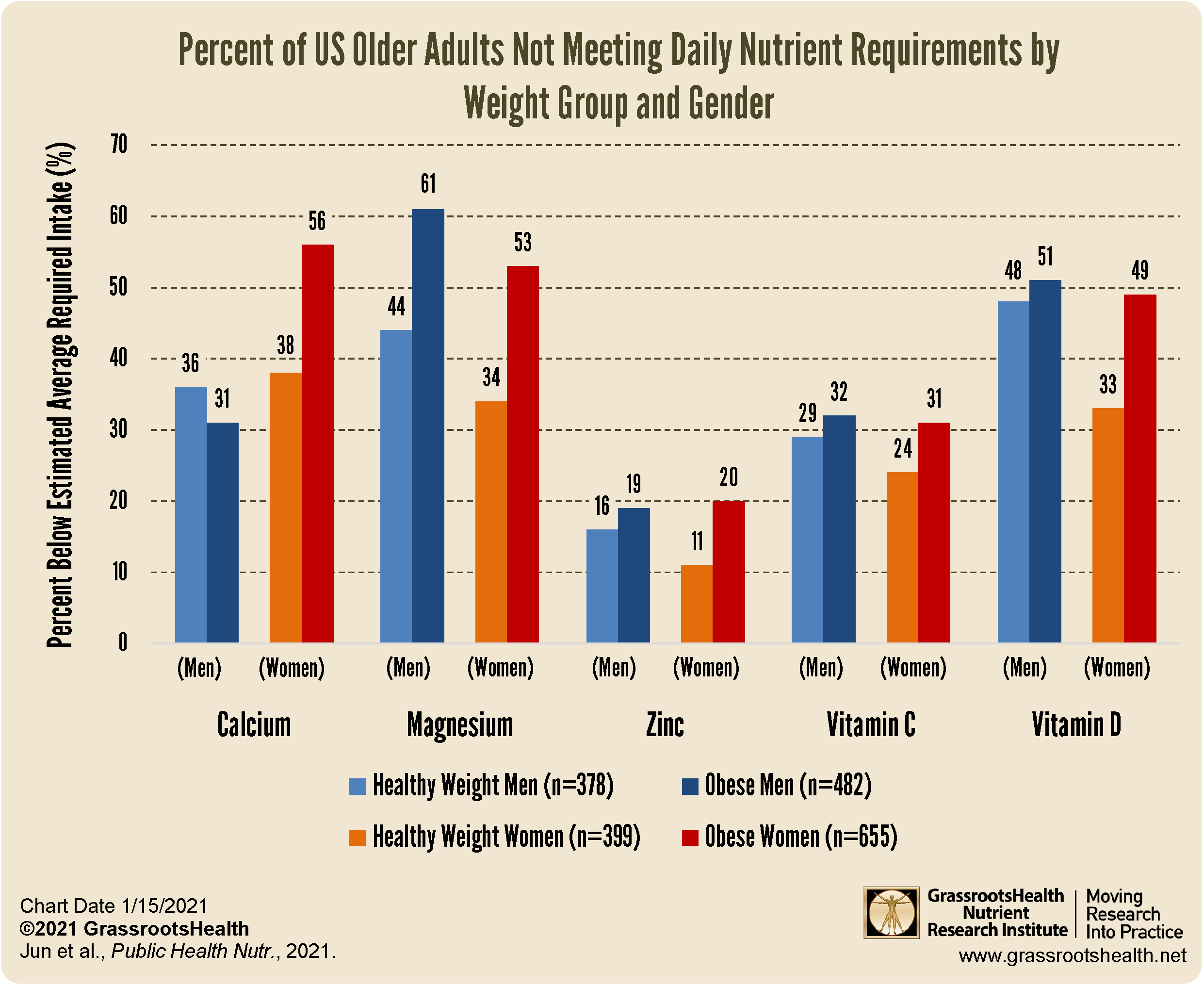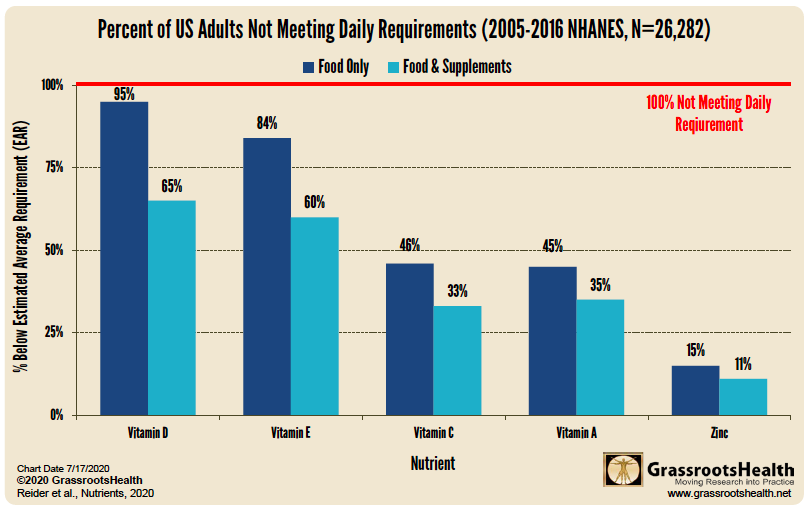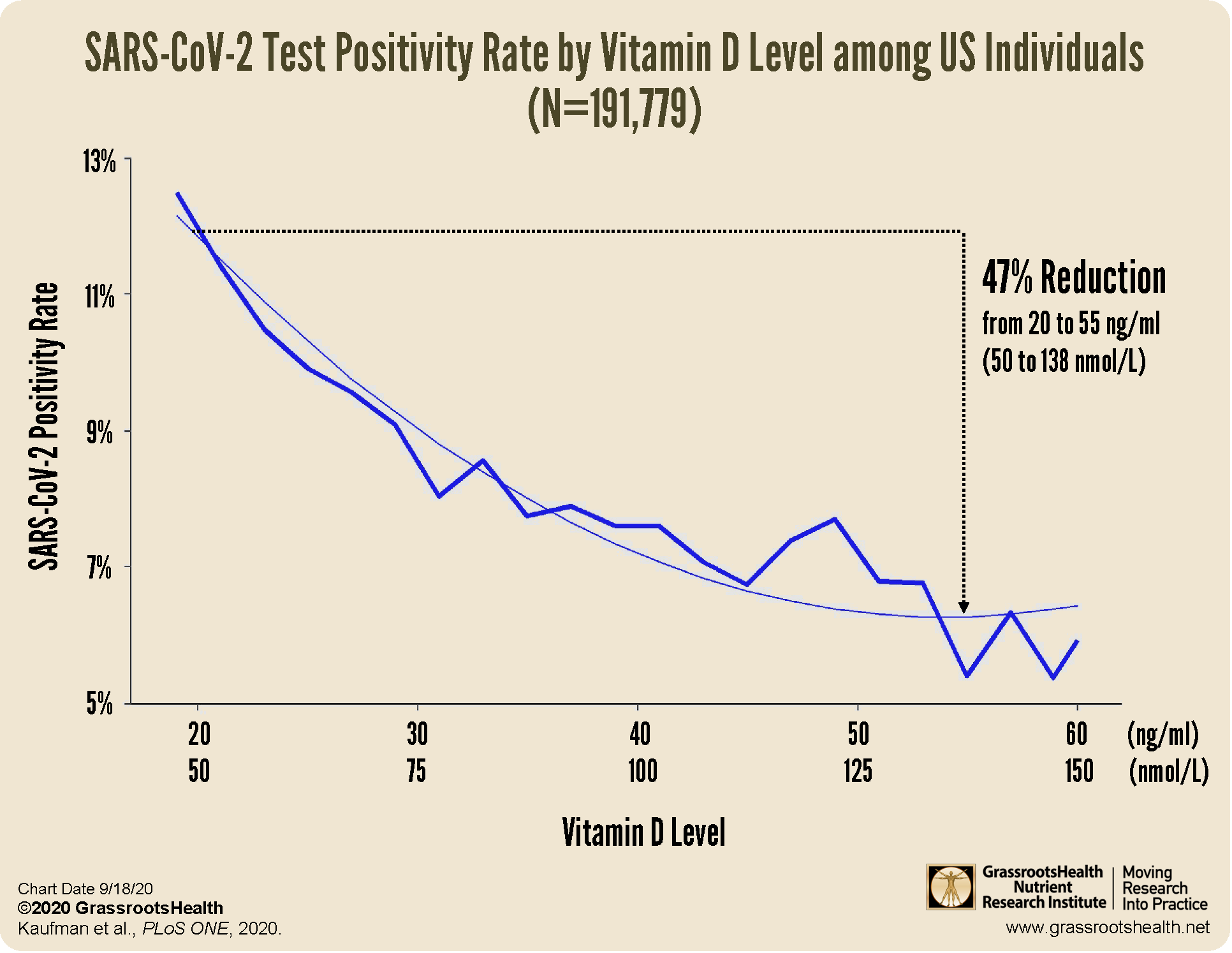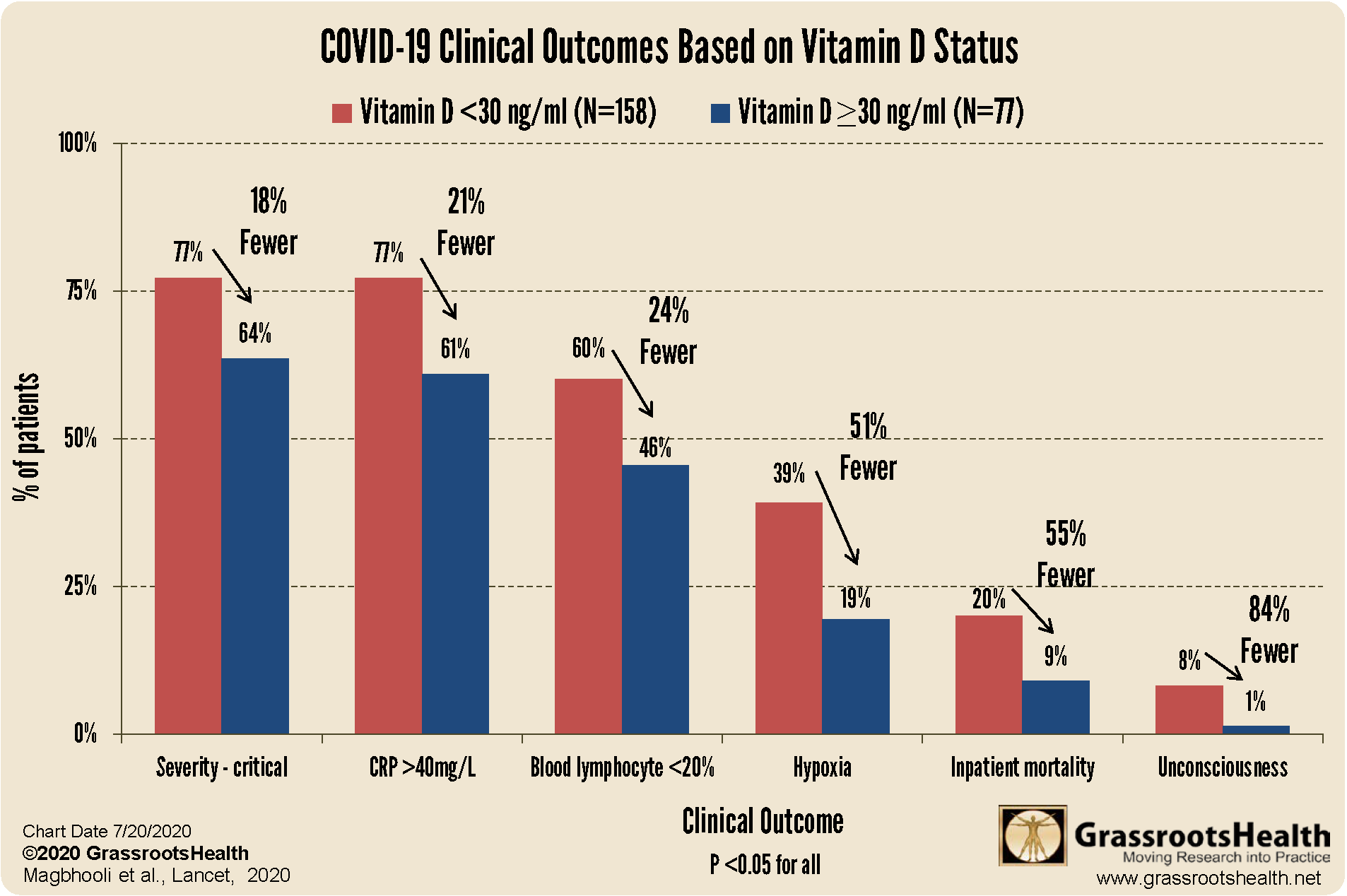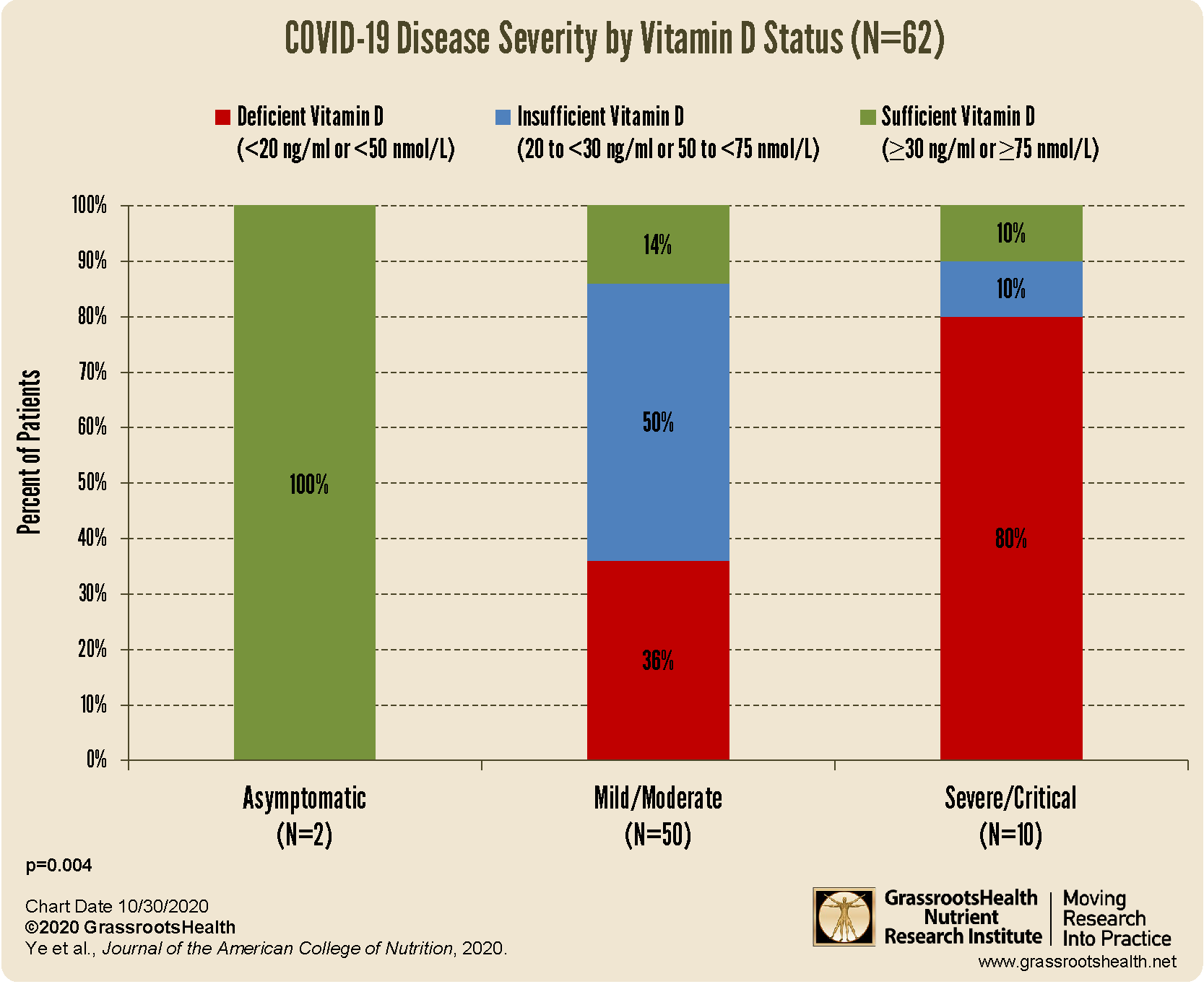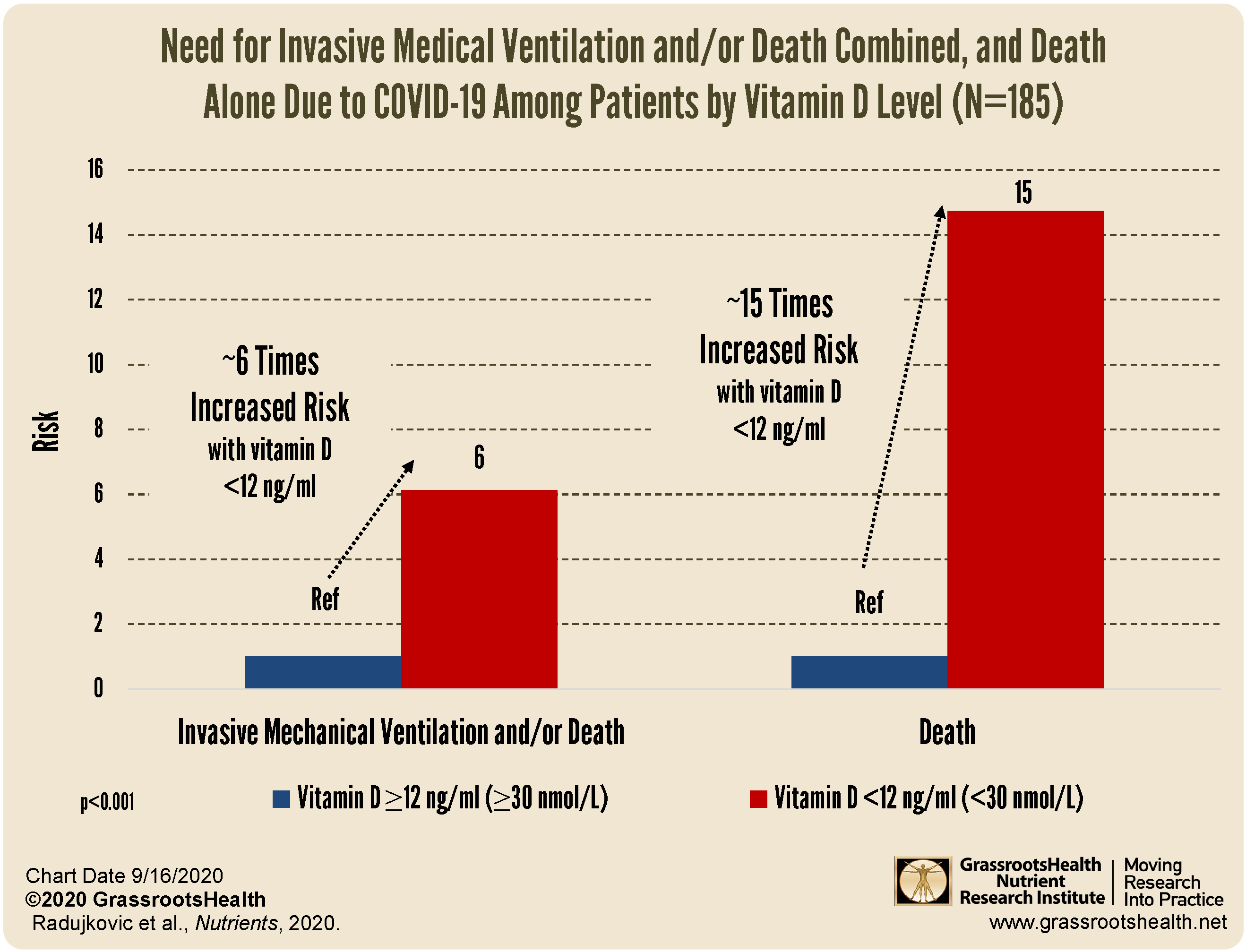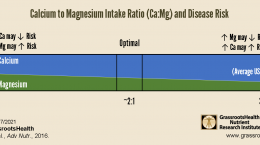Published on January 17, 2021
Which nutrients are you most at risk of not getting enough of, and how does that risk change with weight?
 Several previous posts have discussed how body weight or body mass index (BMI) affects your vitamin D level – those with a higher BMI tend to need more vitamin D and be at a greater risk for vitamin D deficiency. In fact, an analysis of GrassrootsHealth data showed that the amount of vitamin D needed on a daily basis to achieve a vitamin D level of 40 ng/ml (100 nmol/L) can vary by as much as 3 times the amount, depending on BMI.
Several previous posts have discussed how body weight or body mass index (BMI) affects your vitamin D level – those with a higher BMI tend to need more vitamin D and be at a greater risk for vitamin D deficiency. In fact, an analysis of GrassrootsHealth data showed that the amount of vitamin D needed on a daily basis to achieve a vitamin D level of 40 ng/ml (100 nmol/L) can vary by as much as 3 times the amount, depending on BMI.
With BMI having such an effect on the vitamin D dose response, it makes sense that suggesting the same daily intake of vitamin D for all adults simply will not work. If this is true of vitamin D, is it also true for other nutrients? Are there other nutrients that overweight and obese individuals are at risk of being deficient in?
Greater Risk of Nutrient Inadequacies with Higher BMI
A cross-sectional study by Jun et al. published in 2020 evaluated nutrient levels and intakes of adults ages 60 years and older in the United States (n=2969) using the National Health and Nutrition Examination Survey (NHANES) 2011-2014 data based on BMI – they compared intakes between overweight or obese individuals and individuals of a healthy weight. Nutrients evaluated were those identified as “under-consumed nutrients” by the Dietary Guidelines for Americans or those of increased risk for inadequacy in adults, which consisted of calcium, magnesium, zinc, vitamin A, folate, vitamin B6, vitamin B12, vitamin C, vitamin D, and vitamin E. Intake from both diet and supplements was evaluated, and blood levels were measured for folate, vitamin B12, and vitamin D.
Which Nutrients Were At Greatest Risk of Inadequacy?
The study found that overall, among older adults who were 60 years of age or older with a BMI of at least 18.5 (which includes all weight groups except those who were underweight), all were at risk of not getting enough calcium, magnesium, vitamin C and vitamin D on a daily basis, from both diet and supplements. Those who were obese were at even greater risk of not getting enough of each nutrient examined, especially among women.
Looking at diet alone, compared to healthy weight individuals, those who were obese were at greater risk of not getting enough magnesium, calcium, vitamin B6, and vitamin D. Men were more likely to not get enough vitamins C and E, while women were more likely to not get enough vitamins B6 and D. When including nutrient intake from supplements, a substantial proportion were still at risk of inadequate amounts of calcium, magnesium, vitamin C and vitamin D.
In terms of blood levels of vitamin D, obese women were twice as likely to have a level below 16 ng/ml or 40 nmol/L (12%) compared to healthy-weight women (6%). Average vitamin D levels were significantly lower in obese overall compared to both overweight and healthy weight older adults. The risk of folate deficiency and vitamin B12 deficiency was low across all groups.
Nutrients Important for Immune Function
The findings presented above are similar to those found in a previously reviewed paper, which looked at intakes of vitamins A, C, D, E and zinc among adults in the general population (ages 19 and older), due to their well-known roles in immune function. They found that intakes of certain nutrients, such as vitamin C, vitamin D, and zinc, are much lower than expected from previous reports.
The chart above shows the inadequate intakes for each nutrient, based on intake from food alone and from food plus dietary supplements. While supplements do help bridge the gap for some, many are still left with inadequate intake of several key nutrients, especially vitamin D.
As quoted by the authors:
“Micronutrients are a fundamental part of the immune system and require optimal levels for effective immune function. Nutrient insufficiency/deficiency of one nutrient can adversely affect immune health, while multiple inadequacies may put the immune system at a bigger deficit.”
Make sure you are getting enough vitamin D and other important nutrients!
By joining the GrassrootsHealth projects, you are not only contributing valuable information to our study, but you are also gaining knowledge about how you could improve your own health through measuring and tracking your nutrient status, and educating yourself on how to improve it. Do you know what your status of vitamin D, omega-3s, and other essential nutrients is? Could your levels be improved? Test now to find out!
 We now have a NEW GIFTING SERVICE that allows you to quickly send ‘Gift Cards’ to friends, family and coworkers who you consider might need immediate access to testing, and to Claim the Joy of Your Health TODAY. Give the gift today!
We now have a NEW GIFTING SERVICE that allows you to quickly send ‘Gift Cards’ to friends, family and coworkers who you consider might need immediate access to testing, and to Claim the Joy of Your Health TODAY. Give the gift today!
What does the Research Say about Vitamin D & COVID-19?
It’s TIME to start saving lives! If you can help PREVENT the majority of the death, it’s time! What’s it costing you/us not to take action NOW?
There is much published research that supports a clear link between vitamin D and COVID-19 showing that higher vitamin D levels are related to:
a decreased risk of testing positive for COVID-19
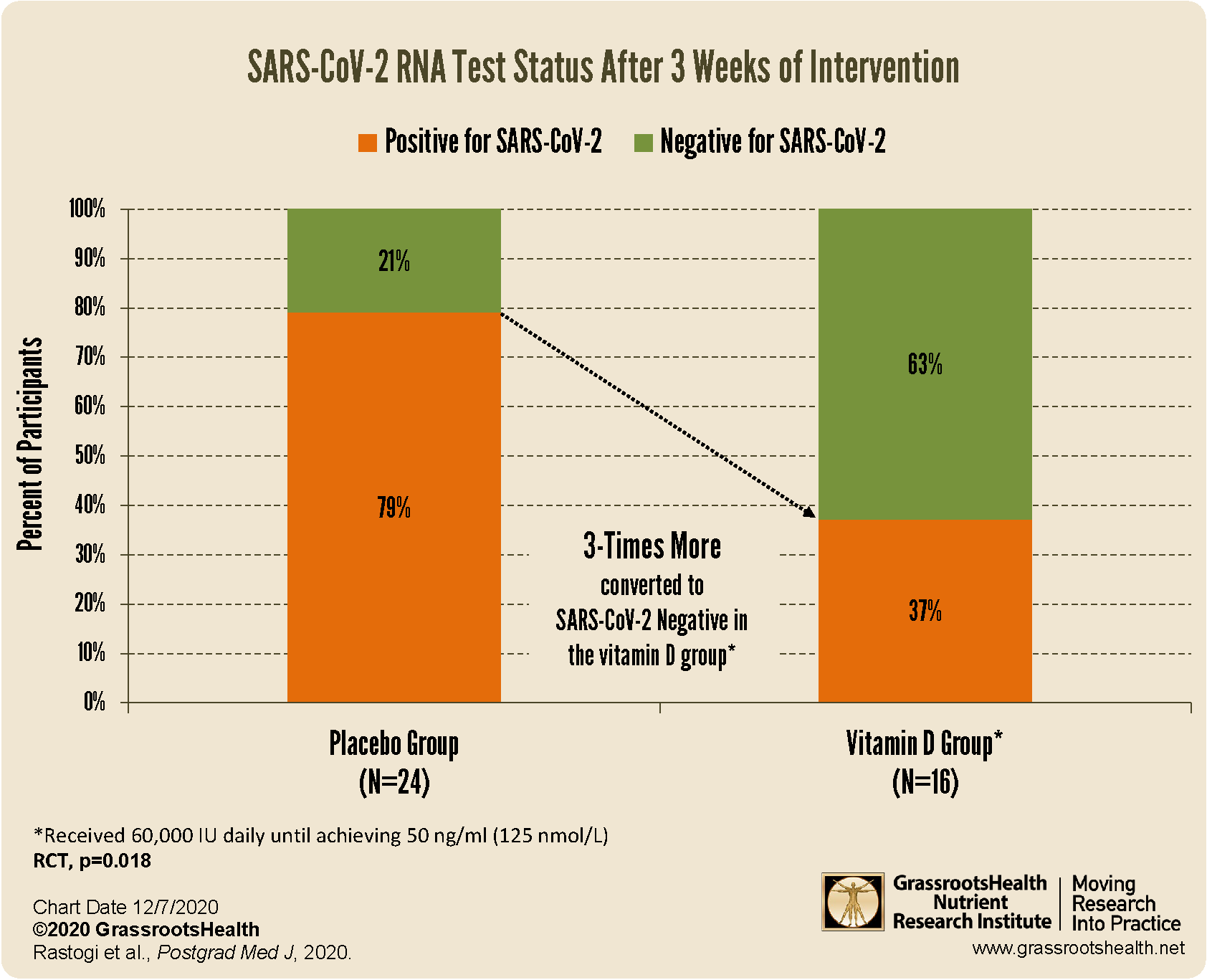 increased viral SARS-CoV-2 RNA clearance
increased viral SARS-CoV-2 RNA clearance
better clinical outcomes among patients with COVID-19
decreased risk of death due to COVID-19
Be sure to educate yourself on the benefits and importance of vitamin D for immune health, and take steps to ensure you and your loved ones are getting enough.
You can review all of the COVID-19 and immune health information we have shared on this page.


